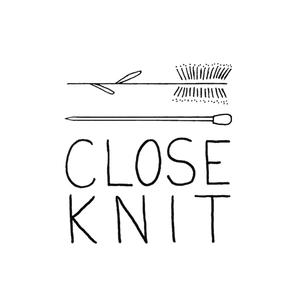
Close Knit
Ani Lee
The Close Knit Podcast aims to hold space for conversation about the ways we use fiber to process life and world events.
- 14 minutes 1 secondEPISODE 68 :: Nathan Ford
In episode 68 of the Close Knit podcast, I spoke to Nathan Ford. Nathan is an improvisational quilter, soft historian, and overall tender maker currently working in Kansas City, MO. Ford’s practice currently revolves around the intersections of queer history and his family history of labor in the Rust Belt. Ford creates quilts that incorporate traditional quilt blocks with unconventional materials to communicate issues of status, sexual desire, and personal identity. He has participated in group shows both in Kansas City and Central Ohio including 3 at the KCAI Gallery, and ImageOHIO. Ford’s work was featured in Attention Grabbing, published by The Columbus Dispatch.
Sadly, episode 68 had a technical malfunction that resulted in most of the episode not saving (cue tears). I salvaged what I could, namely the last 10ish min of our conversation, and I hope you enjoy this small bit of my conversation with Nathan - it was truly such a treat to speak with him.
11 November 2022, 4:06 pm - 58 minutes 4 secondsEPISODE 67 :: Mckenzie Mullen of Em To The Third Yarn Co
In episode 67 of the Close Knit podcast, I spoke to Mckenzie Mullen of Emtothethird Yarn Co. Mckenzie is a queer, fat, Chicana, femme Granny Punk who currently lives in Portland, OR. She runs a small business, Em To The Third Yarn Co., which focuses on knitting, illustrations, and natural dyes.
We talk about information sharing/gatekeeping in the textile community, queerness & zine culture, knitting as a mindfulness exercise, finding fruitful ways to connect on and offline, and making as a radical and joyful act of clothing yourself.
8 April 2022, 3:00 pm - 2 minutes 36 secondsA Podcast Update!
hi friends!
I wanted to give a little update about the close knit podcast and where we’re headed. I recently moved over to substack, which is where I’ll be writing a monthly newsletter and exploring a slightly more experimental practice that will include soundbites and other audio that I’m feeling excited about.
At first, I thought I would post that more experimental work in the same place at the Close Knit Podcast, but it seemed right for this experiment to have its own little home that’s separate from the Close Knit Podcast.
If you’re interested in reading more of my work & hearing from me more often, you can subscribe over on substack. I’ve officially turned off my patreon, so I won’t be using that platform anymore to collect pledges or post work - it’ll all just be on substack. It’s still just $5/month (or $50/year) to become a paid subscriber.
As you may already know, Close Knit is not my main gig, nor is it a “side hustle”. it is, simply, a hopeful gesture of connection delivered to you via the internet. Paying subscribers help me give close knit (both this podcast and the more experimental practice on substack) a consistent home on the internet. my monetary goal is simple and humble: to offset the costs of sharing online.
I’d be absolutely delighted to have you join me over on substack. I’ve felt really motivated and excited to share more writing and audio, and I’m hopeful to be in conversation with you all.
If you’re just looking for the usual interview-style Close Knit Podcast, you’re in the right place. Stay tuned for more episodes right here. My intention is to keep up the interviewing practice when I can manage it and to deliver you a simple, slightly less polished version of the Close Knit Podcast. These episodes won’t have a set cadence, but I’ll always announce new episodes via the newsletter, so no worries, you’ll never miss a new episode.
Thanks so much to everyone who has been supporting me through the many transitions and shapes that Close Knit has taken - whether financially or through your friendship, it has all meant the absolute world to me. Connecting with readers and listeners is the true lifeblood of this work, I wouldn’t keep making it if it weren’t for you.
I think that’s all for now. Hope to see you on substack, either as a free of paid subscriber, and catch ya in your headphones when the next Close Knit Podcast episode airs.
xx
your ani
4 March 2022, 3:00 pm - 7 minutes 21 secondsOn Taking Space - A Podcast Pause
where do we begin? it's been a ~ time ~ we're collectively living through.
i’m feeling a little frayed around the edges, like a piece of fabric that’s been through the wash. lately, i’ve been drawn to unraveling, literally and otherwise - unraveling things down to their fundamental parts - and i’m noticing that my relationship to close knit is in a state of transition.
folks listening to, finding each other through, and enjoying the podcast has been the lifeblood of this work for me. i look forward to a future where i have rested and realigned to be able to bring you more of these conversations.
if you’ve just found the close knit podcast, i’d love to gently nudge you to check out the archives, and if you’re a long-time listener, thank you so much for being here. you can always reach me at hi [at] close-knit.co.
until next we meet, with deep & tender care,
your ani
23 August 2021, 3:00 pm - 1 hour 4 minutesEPISODE 66 :: Masego Morgan & Stella Hertantyo of cncs_
In episode 66 of the Close Knit podcast, I spoke to Masego Morgan and Stella Hertantyo of cncs_ (pronounced “conscious”). I so cherished this conversation with these two - it felt like a wonderful space to sit in our uncertainty and be candid about no knowing what is next.
Masego is a sustainable fashion advocate, residing in the suburbs of Cape Town. Currently doing her postgrad in Sustainable Development, while working as a creative strategist for a local South African brand called Good Good Good - this may change by the time the episode is out since she’s finding it difficult to balance the two and have a personal life. She’s terrible at following instructions, whether it's a recipe or a design pattern.
At the end of last year, Stella completed her B.A. in Multimedia Journalism and she is currently doing her Postgraduate Diploma at the Sustainability Institute in Cape Town. Stella is a slow living enthusiast and a lover of low-impact fashion. She is passionate about encouraging an approach to sustainability that is inclusive, accessible, fun and locally-centred, as we try to figure out how to create a regenerative future. When I'm not in front of my laptop doing uni work, you'll probably find me reading, writing, illustrating or baking/cooking. A dip in the ocean, or a walk in the mountains, are the two things that bring me the most peace.
At the beginning of 2020, Masego and Stella created an online platform together, called cnscs_. They created cnscs_, because they wanted to create an online community where knowledge, ideas, and resources around sustainable living (especially in a local context) could be shared. They see cnscs_ as a space to introduce people to sustainable living and apply it to their lives in a way that’s sustainable to them. Their focus is on telling and sharing African stories and decolonising the current sustainability narrative. They share interviews with lots of change-making people, resource-based articles that inspire positive action and spark thought in our sustainability school section, wish lists, moodboards, musings, and tips and tricks that we have learnt along the way. They talk loads about personal style and slow fashion, but also sprinkle in content that discusses other aspects of sustainability.
13 August 2021, 4:00 pm - 1 hour 5 minutesEPISODE 65 :: Damien Ajavon
In episode 65 of the Close Knit podcast, I speak to Damien Ajavon. Based in Oslo, Damien Ajavon is a queer textile artist, born in France, of Senegalese and Togolese origin. Their work explores the different methods in which textiles fibres can be manipulated by hand: knotted, braided, tangled, and woven. The interaction between visual and tactile experiences has always played an important role in their process; they use their African and western influences as a vehicle for their textile storytelling and as visual markers of their creative approaches. It is through textile languages rather than oral ones that Ajavon has been unearthing and weaving connections with their ancestry.
They have accumulated substantial experience internationally that honed their expertise and technique. They learnt to weave hemp, dye cashmere in Italy and work with feathers (Bevagna, Sant’Anatolia DI Narco, Florence), felting hats and making accessories in Quebec, pattern making and knitwear in New York City.
Ajavon grounds their practice by positioning themselves in the world through their heritage. In doing so, they put into practice their mother’s teachings of African cultures and conjures artistic gestures in honor of intergenerational learning.
This conversation felt just so special to me - at a time when I have felt particularly unmoored (after getting off of instagram), it was so heartening to connect with Damien over our mutual love of fiber. Their work is so beautiful - anchored in physical movement and a wonderful sense of curiosity about how fibers can be manipulated and transformed. I loved hearing their perspective on textile construction, design, and working with human-aided machinery.
We discuss the ways the “craft” is often separated from “fine arts”, and how imperative we feel it is that that viewpoint is shifted. Damien blows my absolute mind when they tell me about their friend’s work with nuno felting, and we share our perspectives of reverence for every craftsperson out there.
We wrap up by discussing Damien’s next steps - a residency in Berlin and a master’s program in Oslo, and we realize our mutual love of socks. We delight in discussing the opportunity Damien has to explore their textile language through their studies - to move beyond 2D technical construction into a realm of expressing their perspective and history through their work. Finally, we talk about the protection inherent in fiber work - both from the elements, and just the harshness of the world - we revel in the protection that textiles bring to those who make and wear them.
9 July 2021, 3:00 pm - 54 minutes 14 secondsEPISODE 64 :: Sharifah Emalia Al-Gadrie
In episode 64 of the Close Knit podcast, I speak to Sharifah Emalia Al-Gadrie. Sharifah Emalia Al-Gadrie is a multidisciplinary artist & community development worker based in nipaluna/Hobart, lutruwita/Tasmania. Her creative practice is responsive and explores belonging and cultural heritage in contemporary Australia, drawing on intersectional feminist theory and lived experience as an Asian-Australian woman. Emalia's work is both research and process driven and is based in mediums including painting, textiles, installation and photography. She currently works for Tasmanian not-for-profit organisation, A Fairer World, managing the Hobart Human Library and Women’s Business projects.
I have so deeply admired Emalia since I met her in 2017 when I lived in Hobart. She has been persistently living her values, doing incredible work in her community, and maintaining a thoughtful and critical artistic practice. I was particularly excited to catch up with her and hear about her life these past few years, she has been absolutely prolific in her artistic practice.
We share stories about life over the last year and compare the ways our community spaces have been altered as a result of pandemic life. She tells me about the shows she’s been part of and in particular, we discuss a project that is especially near to her heart, Women’s Business. Women’s Business is a show that explores the culture, religion, and personal journies of Tasmanian women from migrant and refugee backgrounds through the fashion of their families.
Much of Emalia’s textile work is soft and inviting on the surface, but deals with heavy subject matter - we discuss the ways in which Emalia’s use of textiles is both a response to her personal affection for textiles and their tactility and an act of political meaning. Some of her work is deeply bodily and contains references to or literal body hair, an exploration of her experience growing up on the coast of Australia as an Asian-Australian woman, being bullied for her body hair.
We wrap up by discussing Emalia’s piece Sticks and Stones (pictured above) which took a critical lens to the Islamaphobia that is rampant in Australian media. This piece exemplifies Emalia’s purpose with her art practice, drawing the viewer in with this soft pastel palette, and asking them to consider something they might shy away from. She hopes to engage her audience in these difficult conversations, even if just for a moment, or even just to have them acknowledge that the thing is real and happening.
11 June 2021, 3:00 pm - 54 minutes 50 secondsEPISODE 63 :: Zak Foster
In Episode 63 of the Close Knit Podcast, I spoke to Zak Foster. Raised in rural North Carolina and now living in Brooklyn, New York, Zak is a self-taught textile artist whose work draws on Southern textile traditions while incorporating found fabrics and natural dyes. He practices an approach to design that is intuitive and improvisational and he is drawn to preserving the stories of quilts and specializes in memory quilts. His work has been featured in various magazines, websites, and galleries.
Zak and I start off by talking about his most current work, and how he has been developing his relationship to sharing his art practice through social media. He tells me about two concepts in his work that felt particularly tender to me, especially in light of the pandemic, his memory quilts and burial quilts.
Zak has such a special way of approaching his work, primarily working with reclaimed materials - clothing he finds on the street in his neighborhood, fabrics he’s been given in his travels. He explains that he came to working with reclaimed materials first out of interest, and then from a desire to continue to pursue his joy while lessening his impact on the planet.
I have long admired Zak’s work, and I’ve been so taken with all the work he’s shared, especially lately, and it was such a treat to sit down in conversation with him. Zak is such a brilliant storyteller, and I so admire his resolve around his practice - I hope you enjoy listening to this conversation as much as I loved having it!
14 May 2021, 12:00 am - 1 hour 2 secondsEPISODE 62 :: Vivian Shao Chen
In Episode 62 of the Close Knit Podcast, I spoke to Vivian Shao Chen. Vivian is a potter, sewist, and knitter, and architect by profession. The order of that list changes frequently.
She has been pursuing pottery for almost four years. She learned sewing from her parents when she was a child through their clothing manufacturing business. She picked sewing back up as an adult in the last 20 months or so, and now she has transitioned to drafting almost all her own garments. She taught herself to knit about two years ago as a way to keep her hands busy when she’s too tired to be in the studio.
She recounts memories of her childhood in the factory her parents managed in Montreal after immigrating from Taiwan - a unique look at the manufacturing process that gave her an early understanding of garment construction. Vivian only picked garment sewing up more recently as an adult, and we talk about the ways she approaches her garment-making - from a place of form, function, and technical skill. She tells me how all of her many creative pursuits have some mix of this triad of things.
We talk about how she came to knitting as a way to occupy her hands on her commutes from Philadelphia to her job in NYC at the time, and how she came to understand knitted garment-making, and how she made it her own. Vivian is a person who enjoys the technical and problem-solving elements of her creative process, a quality that has lent itself to many pattern alterations, and overall a responsiveness to garment-construction process.
Much like in her pottery practice, Vivian’s aesthetic has come about as a result of making work - her forms organic, her materials natural, a reflection of her interest in light and shadow, and her affection for rustic and complex natural yarn colors.
Vivian is a multi-talented creative person, and it was such a treat to hear her perspective on how all of her experiences across her various practices have come together to influence each other in what you see of her present-day practice.
2 April 2021, 7:01 am - 1 hour 9 minutesEPISODE 61 :: Francisco Diaz of Cisco Sews
In Episode 61 of the Close Knit Podcast, the first episode of 2021, I spoke to Francisco Diaz of Cisco Sews. Francisco is a multidisciplinary creative craftsman with a keen visual eye. A sewing newbie focused on second-hand upcycling and material transformation. Francisco aims to be constantly trying new things, sustain imperfect sustainability and remain queer af.
Francisco and I covered a ton of ground in this episode, and I loved every minute. We talked about gender expression and dressing in a way that feels (and is) safe, and how this sense of safety can be modulated by community. We discussed how our creative expression is shifted by the area around us - in Francisco’s instance, the difference in their creative expression between their time in LA and in their current home in Arizona.
We discuss our perception that attitudes, in general, toward thrifting and sustainability have shifted over time and how the upcycling community has grown after the past decade or so. Francisco talks me through his approach to upcycling and how he first got into making his own garments, taking inspiration from the online fashion community, and finding ways to make his own garments through trial and error. We talk about the well-intentioned advice-giving that is widespread within the making community, and how sometimes, we just want to make the mistakes on our own and learn as we go.
Francisco explains to me how they believe that social media has accelerated the learning process for many when it comes to making & upcycling, but that they themselves can also feel constricted by social media norms when it comes to expressing their identity and their making process with nuance and care. He has also at times felt pressured to sell his work, a feeling that has sometimes stripped some of the joy of making for him. (In case it’s not obvious, I related to a lot of what Francisco spoke to!)
Francisco’s work is just phenomenally beautiful - I love the way he has cared for and nurtured both his dressing identity and his curiosity about garment construction and sustainability through his sewing practice. Be sure to browse Francisco’s Instagram for loads of lovely garment-making inspirations & stop by his site to read his wonderful interviews with other makers in the community!
5 March 2021, 4:00 pm - 1 hour 3 minutesEPISODE 60 :: Grace Rother
In Episode 60 of the Close Knit Podcast - the final episode of 2020, I spoke to Grace Rother, a lesbian quilt-maker and writer. I have long admired Grace’s practice - her way of making things accessible and her deep clarity on how she makes and shares. We talk about her quilt raffles this year, most recently culminating in her virtual quilting bee raising funds for Assata’s Daughters, an effort of more than 100 quilt-patch makers. Grace and I discuss the ways that textiles hold a softness for concepts and ideas that might feel a bit scary or out of our norm, like defunding the police and abolishing prisons. We talk about translating cozy sweater trends through DIY knitting, and how boundaries come into play when sharing online.
Grace has shifted her practice over this year to change how she engages with Instagram, a shift I have been taking notice of and wondering if I might find a similar path - and we talk about how that shifting attention feels and looks for her. This is the final episode of 2020, and I feel so grateful that Grace joined me for this chat!
Want more?
Subscribe: Itunes
Follow along on Instagram
Support the podcast through patreon
18 December 2020, 3:00 pm - More Episodes? Get the App
Your feedback is valuable to us. Should you encounter any bugs, glitches, lack of functionality or other problems, please email us on [email protected] or join Moon.FM Telegram Group where you can talk directly to the dev team who are happy to answer any queries.
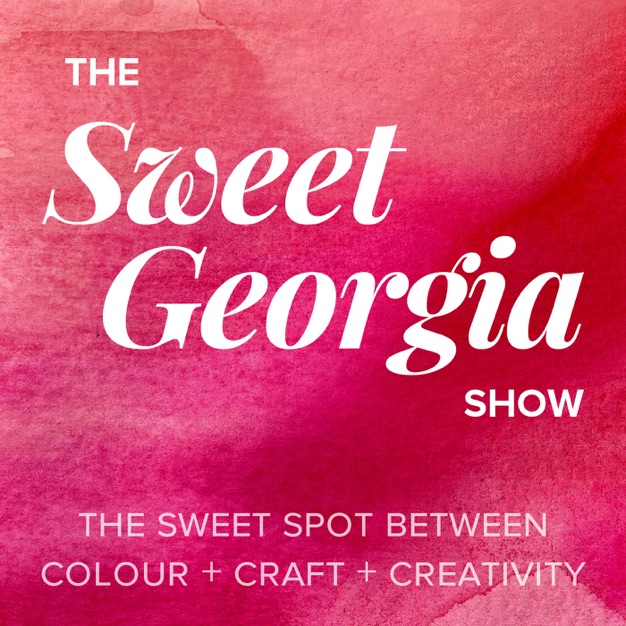 The SweetGeorgia Show
The SweetGeorgia Show
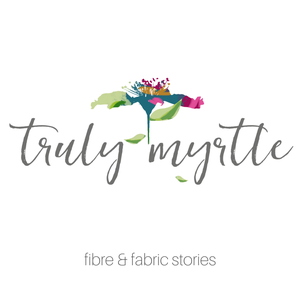 Truly Myrtle
Truly Myrtle
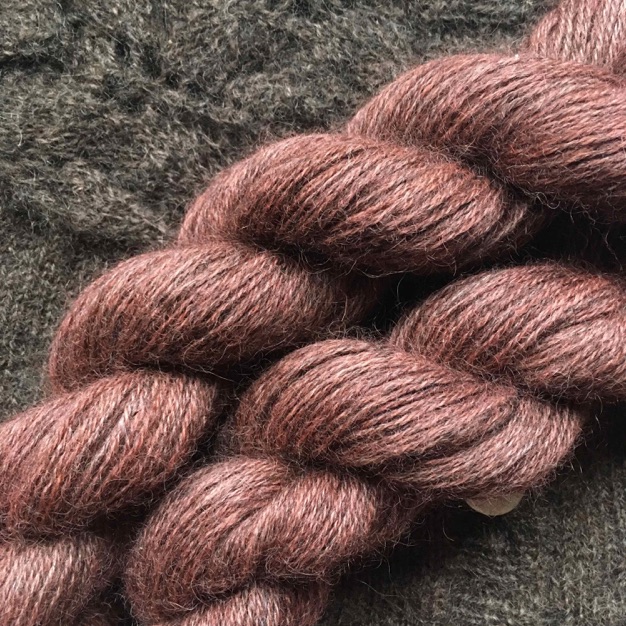 Mrs M's Curiosity Cabinet
Mrs M's Curiosity Cabinet
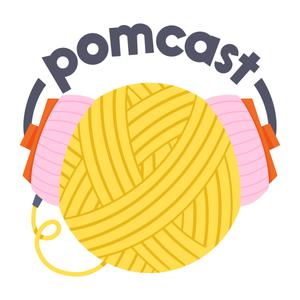 Pomcast! A knitting podcast from Pom Pom Publishing
Pomcast! A knitting podcast from Pom Pom Publishing
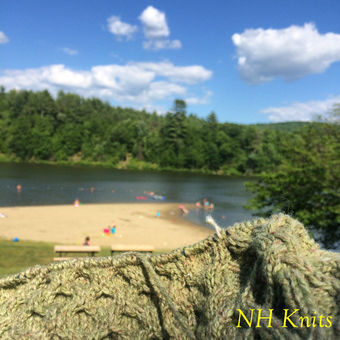 NH Knits
NH Knits
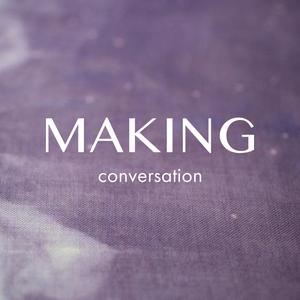 Making Conversation
Making Conversation